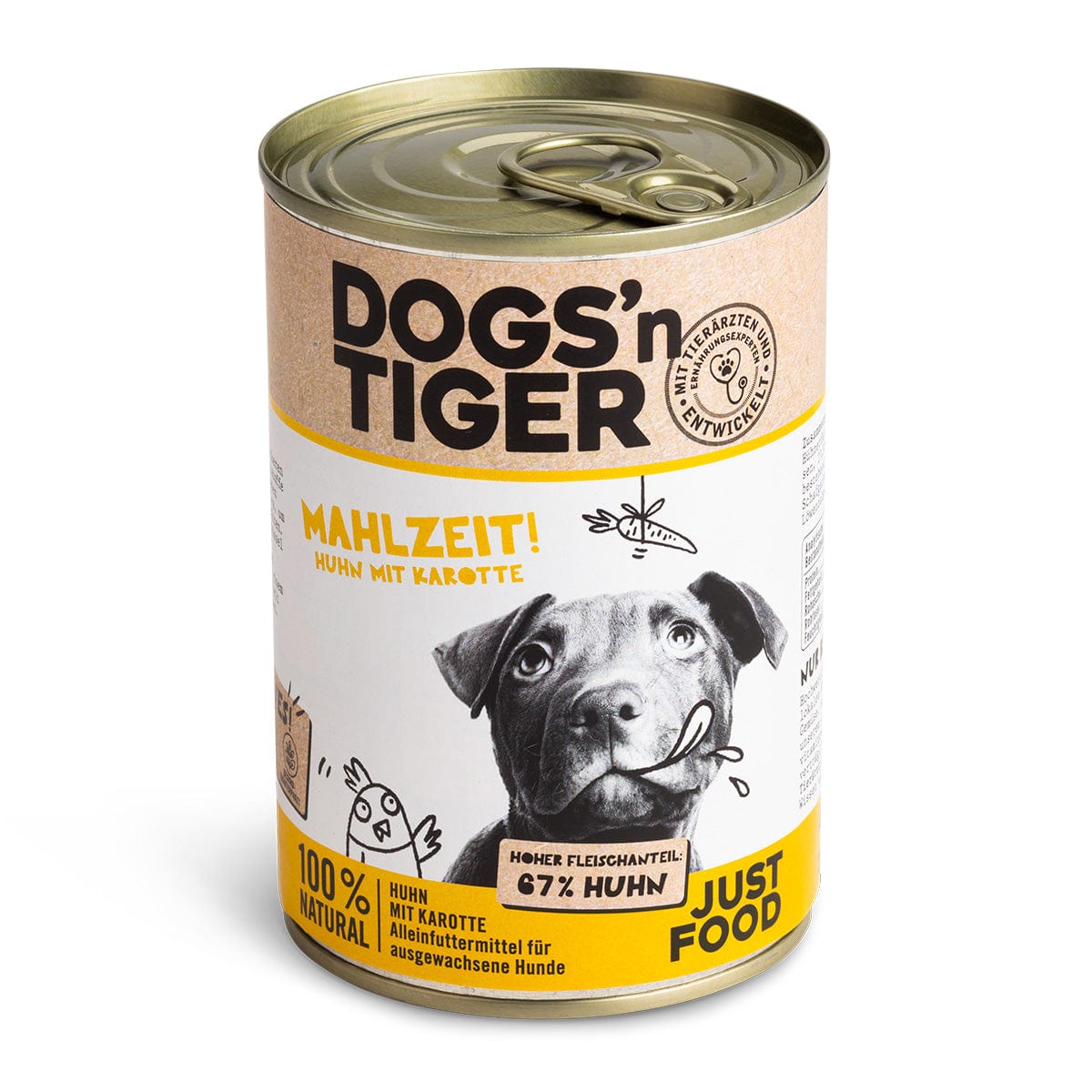
It's a shock at first: the dog is doing his business and suddenly you discover blood in it. Is bloody diarrhea in dogs harmless or a real emergency? First of all, it’s time to keep calm. In this article you will learn everything about the possible causes of blood in dog feces. We will also clarify the question of when you should definitely take your doggo to the vet and what treatment options are available.
Where do diarrhea and blood in the stool come from?
You and your dog – you are a close-knit team. Therefore, you know exactly how your four-legged friend does his business and how he behaves when he is well. Of course, you are all the more worried if something suddenly changes and you notice bloody diarrhea in your dog.
Bloody diarrhea in dogs can always have different causes:
- Gastrointestinal diseases
- Allergic reactions to food
- Sudden change in food
- Medicines and worm treatments
- Diseases of the liver and pancreas
- Parasites and worms
- Poisonings
A distinction is made between acute diarrhea, which occurs without warning, and chronic diarrhea. If there is blood, then a precise anamnesis is important.
Bloody diarrhea: These are possible causes in dogs
Does your dog have blood in his stool, mucus and very runny stool? Then you should definitely clarify the causes. Sometimes there are completely harmless triggers behind bloody diarrhea in dogs when the four-legged friend's bowel movements change. In other cases, quick treatment is needed so that the doggo is fit again soon. The color of the blood gives you an initial indication of what the cause of the stool change might be.
What the color of the blood in diarrhea tells you about the cause
To get an initial assessment of where your dog's bloody diarrhea is coming from, you need to take a closer look. The color will later give you and the vets important information about what could be behind the blood in the dog's feces.
- Light-colored blood : If your dog has light-colored blood in his stool, this indicates fresh blood from the large intestine area. For example, an injury could have occurred.
- Dark blood : If the blood is dark in color, it has been in the colon for some time. Maybe it's a symptom of constipation.
- Black Blood : If the blood is black, then it has already been digested. This indicates a problem with the stomach or small intestine.
Bloody diarrhea can occur in dogs in varying degrees of intensity. Sometimes there are just a few drops of blood mixed into the feces, in other cases streaks can be seen or the feces have completely turned reddish. If diarrhea and bleeding occur together, this is always an alarm signal, regardless of the intensity.
Reasons for bloody diarrhea in dogs: This can be behind it
The spectrum of possible reasons and causes for bloody diarrhea in dogs is large. It is therefore important that you monitor your dog closely now to see whether any other symptoms appear or whether his personality has changed. You can find the most common causes of bloody diarrhea in dogs in the overview below.
-
Foreign body swallowed
Is your dog as curious as most other dogs? Then he may have swallowed a foreign body. Maybe he mistook a sharp object for food while out for a walk or picked up a toy in the apartment. Sharp objects can injure the colon and cause bleeding. When excreted, the feces become bloody. -
Poisonings
If dogs ingest poisonous plants from nature or have eaten poisonous bait , this can lead to internal bleeding. Quick action is now required because this is an acute emergency. You can usually recognize this by a strong change in behavior with expressions of pain. -
Side effects of medications
Has your dog recently been given medication or prescribed antibiotics? This can then lead to irritation in the gastrointestinal tract, which in turn triggers bleeding. -
Parasites
Bloody diarrhea in dogs can be caused by various parasites such as giardia or worms. Many of these parasites cause damage to the intestinal lining, which leads to reddish stool consistency. They can even damage internal organs. -
Chronic or acute intestinal inflammation
If inflammation occurs suddenly or develops gradually over several weeks and months, it can lead to bleeding. The intestinal mucous membranes are irritated and can no longer work as usual.
If your dog has blood in his stool, there could be many other triggers such as tumors or kidney problems . The blood and diarrhea are just symptoms of an illness that you should definitely get to the bottom of.
Bloody diarrhea in puppies: Giardia is often behind it
If a puppy has blood in its stool, the cause is often a Giardia infection. These small intestinal parasites reproduce through cell division and often cause gastrointestinal illnesses, particularly in puppies and young dogs. The most common symptoms are vomiting and bloody diarrhea in dogs with mucus.
Giardia is absorbed from the environment. Since the intestines of young dogs are not yet well developed, they are particularly susceptible to infection with intestinal bacteria. Natural protection is missing. Dogs infected with Giardia tend to become weak, reluctant to exercise and have a loss of appetite. Affected dogs quickly become dehydrated due to the bloody diarrhea - which makes it all the more important to get a diagnosis from a veterinary specialist.
Blood in the stool: When does my dog need to go to the vet?
Watery and bloody diarrhea in dogs always requires treatment. Veterinarians can rule out the possibility of acute and life-threatening poisoning. In addition, the watery feces can quickly lead to dehydration and, as a result, kidney failure. In most cases, there are additional symptoms such as listlessness, fatigue and apathy. The dogs show pain when defecating or get sores on their anus. Observe these complaints very closely - this will help veterinarians later make a quick diagnosis.
For the diagnosis, a stool sample is usually collected first - you can bring this with you to your visit. If veterinarians find bloody diarrhea in the dog's stool sample, they will initiate further examinations. An endoscopy or an X-ray examination is often the method of choice. Depending on the diagnosis, your doggo will receive medication, worm treatment or a recommendation to change his food. Sometimes a foreign body has to be removed during surgery.
Dog has blood in his stool, but is fit
Bloody diarrhea in dogs can take many forms. Maybe there is actually just a small inflammation behind it or the four-legged friend can't tolerate the food. Nevertheless, as a precaution, you should have your dog examined by a veterinarian to rule out more serious health problems. It is often enough to change your diet or treat a minor inflammation with medication. Your doggo will thank you with a long and healthy dog life.
Species-appropriate dog food is a must for healthy digestion
A balanced diet and high-quality, species-appropriate food generally form the basis for healthy digestion. Even certain ingredients in cheaper dog food can lead to constipation or diarrhea, the mucous membranes become irritated and, as a result, bleeding occurs. You should therefore pay attention to the quality of the food and the ingredients.
Dogs'n Tiger products were specifically developed to provide dogs with a species-appropriate diet . By using various herbs and avoiding artificial flavors, you create the best conditions for a healthy diet. Developed with nutritionists, species-appropriate recipes support healthy digestion. The high meat content comes very close to the four-legged friends' natural diet and the food has 100 percent food quality of all raw materials.
If your dog suffers from bloody diarrhea, the nettle herb contained in many varieties can have a supportive effect because this plant is said to have an anti-inflammatory effect.
Conclusion: Bloody diarrhea in dogs requires quick action
The good news is: Bloody diarrhea in dogs can also have completely harmless causes that can be treated quickly. Nevertheless, you should always take blood in your dog's stool seriously and have it checked out by a vet. Very often there is a worm or parasite infestation behind it, but sometimes there are very serious problems such as poisoning, a swallowed foreign body or a tumor.
If your dog's digestion is disturbed and there is a food intolerance, for example, then it's best to try our Dogs'n Tiger dog food with a high meat content and no artificial additives. This creates the best conditions for good digestion and long-term intestinal health.












